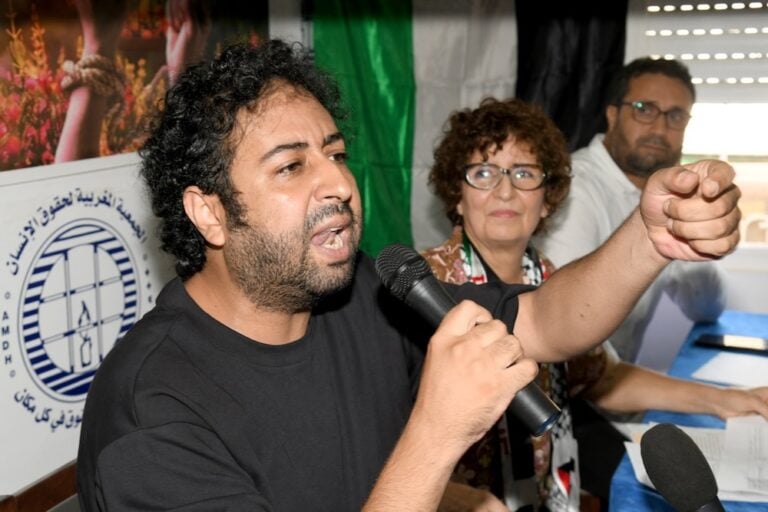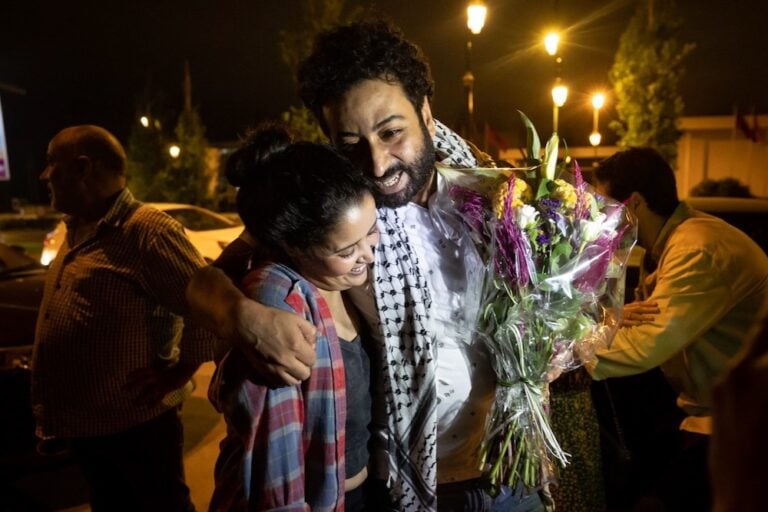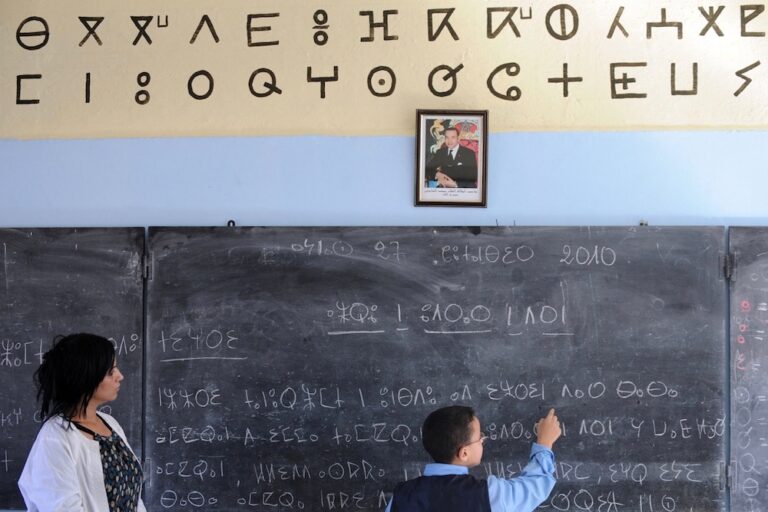(RSF/IFEX) – RSF is alarmed over the serious deterioration of press freedom in the kingdom in recent months. Attacks on press freedom have multiplied since the start of the year, notably in recent days, with the arrest of three French journalists and a minister’s threats against a Moroccan journalist. RSF Secretary-General Robert Ménard believes it […]
(RSF/IFEX) – RSF is alarmed over the serious deterioration of press freedom in the kingdom in recent months. Attacks on press freedom have multiplied since the start of the year, notably in recent days, with the arrest of three French journalists and a minister’s threats against a Moroccan journalist. RSF Secretary-General Robert Ménard believes it is “extremely unfortunate that Morocco does not keep its promises when one considers the many positive signs which had been given since Mohamed VI took the throne. Taken together, these measures signify a serious effort by the authorities to reign in the press which deals with ‘sensitive’ subjects, such as the future of the Western Sahara, human rights violations during the reign of Hassan II or Islamist movements.”
On 12 October 2000, the Moroccan authorities informed Iqbal Ilhami, a correspondent with Qatari television station El Jazira, that she could no longer exercise her profession in Morocco. Just as the journalist was trying to transmit images to her office, the public station RTM, through which she usually broadcasts her reports, denied her permission to do so, citing “technical difficulties”. This decision is likely linked to deteriorating relations between Qatar and Morocco. A representative of the Fédération Internationale de Football Association (FIFA) from Doha recently decided not to support Morocco’s candidacy to host the 2006 World Cup.
From 8 to 10 October, three France 3 journalists – cameraman Joseph Thual, editor Jean-Marc Pitt, and video editor Michel Bernasconi – were placed under house arrest in Errachidia (in Morocco’s east). On 7 October, they had covered a pilgrimage by the organisation Forum Vérité Justice (Truth and Justice Forum) to the prison in Tazmamart, located sixty kilometers from Errachidia. The authorities accused them of filming military installations. The journalists were able to return to France on 12 October, but their materials were confiscated. In June, Thual was put under close surveillance while reporting on the Ben Barka case. Some of his videotapes were confiscated by customs services at the Rabat airport. On his departure, Hamidou Laânigri, director-general of the counter-espionage services (Direction de la surveillance du territoire, DST), told a Moroccan journalist that Thual “had better not return to Morocco.”
On 4 October, during a briefing about Morocco’s position on the Western Sahara, Minister of the Interior Ahmed Midaoui threatened Aboubakr Jamaï, publishing editor of the weekly “Le Journal”. Referring to a “Journal” interview with the Polisario Front president (in an issue of the newspaper which was seized on 15 April), the minister told the journalist: “if you should again publish an interview with a Polisario Front member, I will ban your paper again,” and added “You are lucky you’re not my son or I would have smashed your face in!”
On 5 February, two French-language weeklies, “Le Reporter” and “Le Quotidien du Maroc/Economie”, and one Arabic-language newspaper, “Al Moustaquil”, were seized because they had published, in whole or in part, a memorandum by Cheikh Abdeslam Yassine, head of the largest Islamic movement in the country. On 15 February, one issue of “Jeune Afrique-L’Intelligent” was banned. It contained an article by Abdellah Labdaoui, a Moroccan intellectual living in Québec, which questioned Mohammed VI’s ability to carry out meaningful reforms and punish those who had perpetrated human rights violations under his father’s reign. On 4 March, The French daily “Le Figaro” did not appear in Moroccan newsstands, because it contained an article about a book written by François Cléret, King Hassan II’s personal physician. According to Cléret, “the body [of opposition figure Mehdi Ben Barka] was…cut into pieces, by order of Hassan II, and taken to Morocco in diplomatic bags.” On 15 April, the weeklies “Le Journal” and “Assahifa”, both printed in France, were prevented from entering Morocco. In its previous issue, “Le Journal” had published an interview with Polisario Front President Mohammed Abdelaziz. The weekly “Assahifa”, which did not publish the interview, was simply punished for belonging to the same media group as “Le Journal”.


